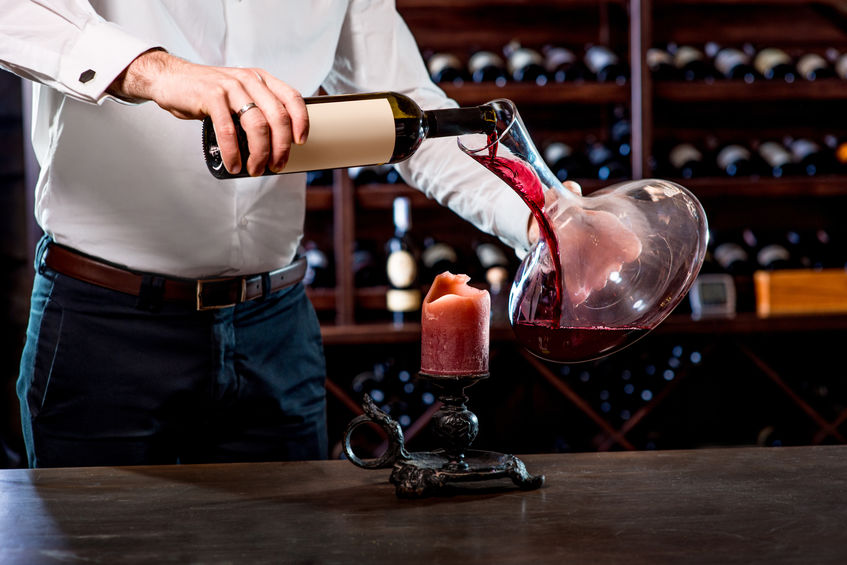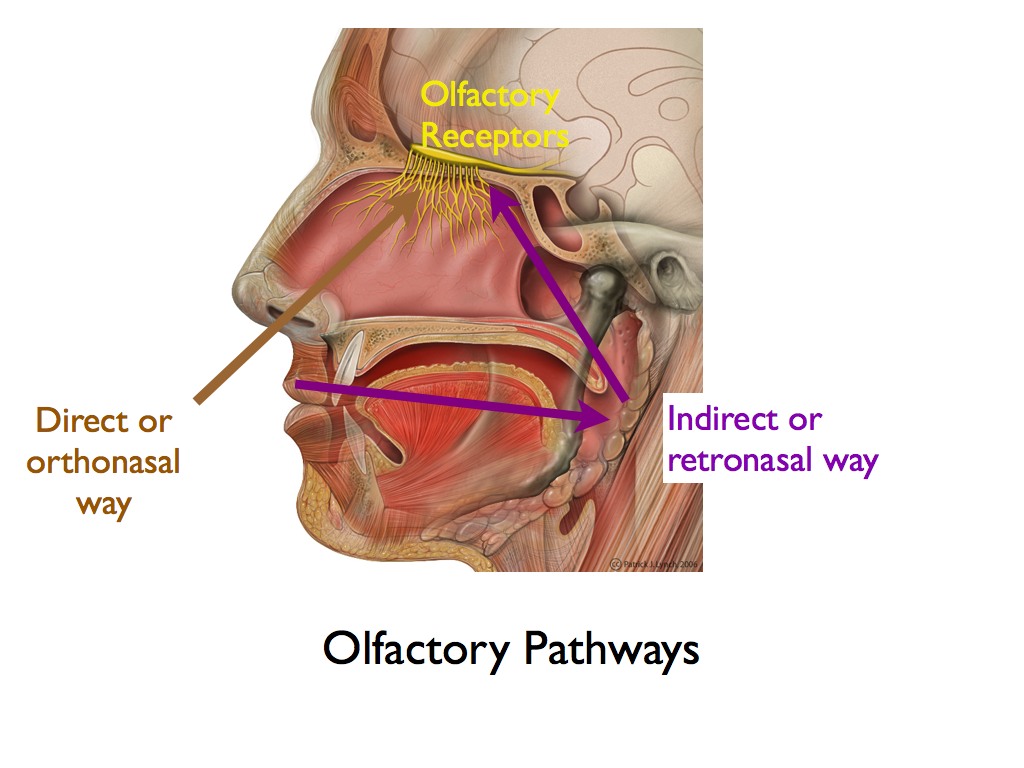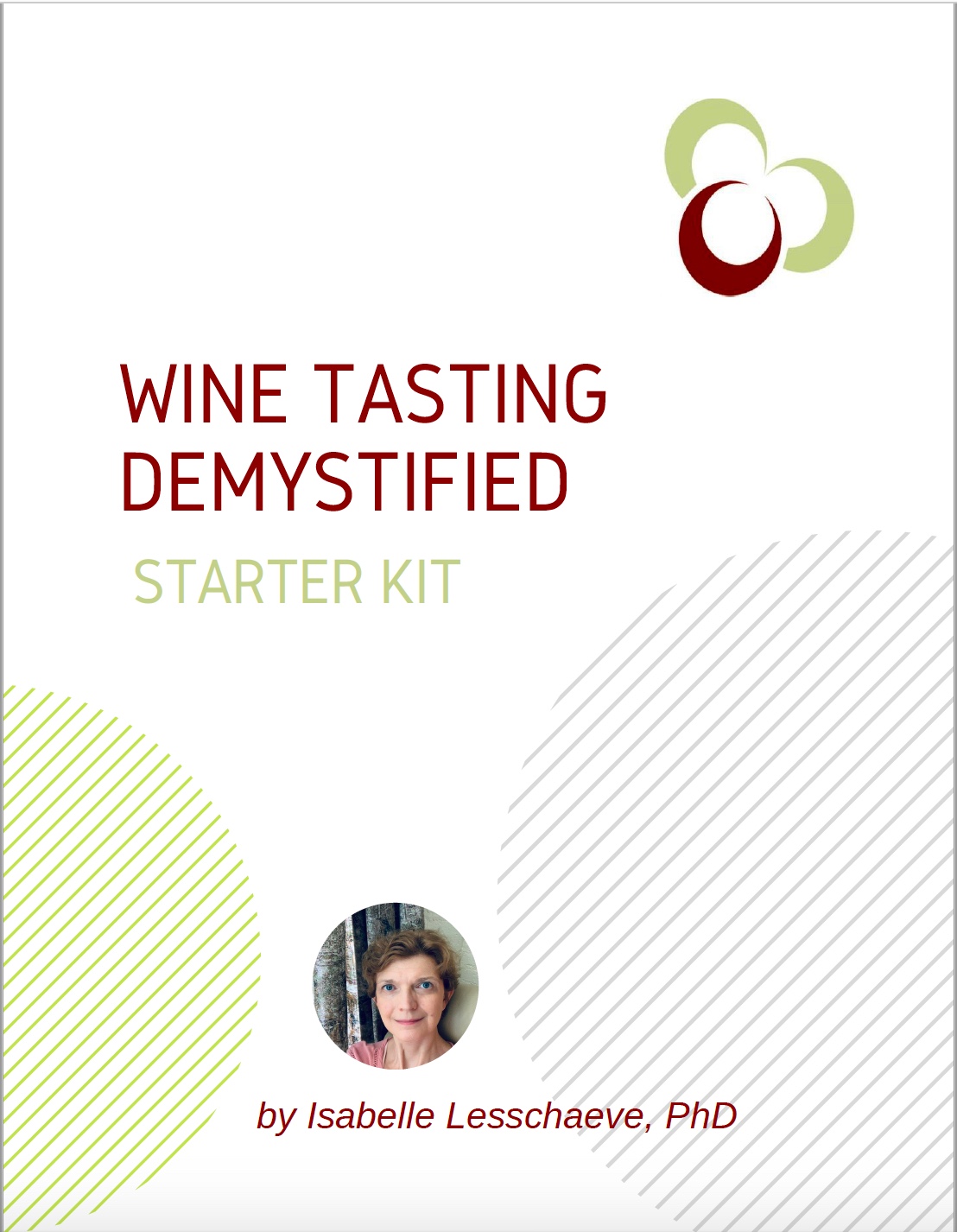Nine common wine tasting questions and a surprising one

Last week, someone asked me one of the most unusual wine tasting questions.
How to describe a well-made wine?
It took me by surprise. I was never asked this question before, which made me ponder. I provide my answer below.
First , let’s set up the context.
I led a wine aroma training session online. The session was an overview of my usual course, focused on using the Wine Aroma Wheel to describe wine aroma. The group of 12 passionate wine enthusiasts was very engaged and asked excellent questions. Check out the key takeaways.
Nine Common Wine Tasting Questions
1- Do you always swirl your glass?
Yes, I recommend to smell the wine first, without swirling the glass. You will perceive the most volatile aromas. Then, I swirl my glass, usually three times, and smell to detect other sensations. The swirling will accelerate the volatilization of the heavier wine aromas.
2- Why do I specify the number of swirls?
It’s essential to be consistent when tasting to compare several wine samples. You want to treat the wine samples the same way.
3- How aeration change the aroma profile?
Swirling the glass is a form of aeration.
Other forms of aeration include opening a bottle one hour before tasting or decanting a bottle. People like to do so for older wines. Allowing oxygen contact will allow some aromas to be released. There might be residues or precipitates in old wine bottles and decanting/"carafing" will prevent them from pouring them into glasses.

4- Is it normal to taste aromas that are different from the ones we smelled?
This is one of my favorite wine tasting questions, because smelling and tasting different aromas is often a source of confusion. You smell first and want to confirm the aromas by tasting, and you don’t pick them. That how you think you are wrong, but you are not.
The aroma compounds need to be airborne to reach your olfactory receptors at the top of your nose. When you smell, you can detect only the most volatile compounds, such as the citrusy and floral notes.
When you taste the wine, it warms up quickly in your mouth. The warmth facilitates the release of less volatile compounds that you cannot detect through the direct olfactory pathway.

5- What are the primary, secondary, and tertiary aromas?
The primary aromas come from the grape varieties. Some examples are the Rose aroma in Gewürztraminer, Grapefruit or Boxwood in Sauvignon blanc or Black pepper in Shiraz.
The secondary aromas appear after the alcoholic and malolactic fermentations. Some examples include the Buttery notes of some Chardonnay wines, Yeasty in Sparkling wines, or Toasted Oak from barrel-fermented wines.
The tertiary aromas develop during bottle aging, such as Prunes or Leather in older Cabernet Sauvignon wines.
6- Can we appreciate wine at a restaurant, after having sampled a few other drinks before?
Restaurant rooms are often busy, noisy, and full of great cooking smells.
Having a few drinks before tasting a special wine may not be the best experience. It would be best if you took the time to cleanse your palate [see how] and clear your mind to focus on the wine aromas and flavors. Therefore, I will not recommend it. I shared my experience previously in this article.
7- What aromas do you get from this wine?
This is also one of the most frequently asked wine tasting questions.
When wine professionals lead a wine tasting, they tend to share out loud what they perceive.
Sensory scientists like me wait for the participants to share what they experience. I have often not tasted the wines before to avoid influencing people with my body language, like approving or looking surprised.
When professionals lead the wine description, participants expect these people to be “right” and feel bad if they don’t perceive the same aromas. That’s how you can feel intimidated or confused.
8- What’s the best temperature to taste wine?
We recommend serving the white wines and rose at 50-52 F (10/11 C) and the red wines at 63-65F (17/18C). If the white wine bottles sit in a fridge, let them sit outside for about 30 minutes.
Check out this article on wine temperature.
9- How to use wine aroma kits?
This is one of the most common wine tasting questions, especially and I teach how to use the Wine Aroma Wheel.
There are pros and cons to using wine aroma kits. They are pricy and too intense to represent what you perceive in wine. It would be best if you dilute them in a glass of wine. However, they are convenient and allows you to smell aromas you may have never smelled before.
Check out this article for in depth discussion.
The surprising wine tasting question
10- How to describe a well-made wine?
I was not sure to understand the question at first, and the student describes wines that are so harmonious that no aroma is sticking out.
My response was: you need to break it. I meant that, by swirling the glass for several cycles, aromas should stick out. By mixing the wine in the mouth, both the temperature and saliva should help release some aromas.
Now I am reflecting, why breaking the wine if it is so balanced. Maybe the best description is the winemaker signature on this particular wine.
Any thoughts? Leave me a comment below.
Published September 3, 2020
Do you have a burning question on how to taste wine or how to set up your next wine tasting?
Whatever questions you may have about wine tasting, wine perceptions, wine vocabulary – or anything else related to having a great wine sensory experience – ask them here.
We will do our best to answer them. If we don’t answer your question, the most likely reason is that we have answered the question before. Occasionally it’s because the question is outside the scope of this website, or of our knowledge.
What Other Visitors Have Asked
Click below to see questions other visitors submitted to this page...
Dentures
Do dentures affect your ability to taste wine?
Mouthfeel wheel
Do you sell a mouth feel wheel?
I already purchased your Aroma wheel.
Thanks.
Cork taint in wine
I enjoyed your post with a lot of useful information on corked taint . However, I would like to add a comment concerning chlorophenols and chlorine.
…
Rotundone in Gruner Veltliner and skin contact impact
It is also interesting to mention that rotundone, as you mentioned in your article What does Make Peppery Wines Peppery? is variety specific, and is …
TDN in Riesling
Thank you for an interesting article on TDN in Riesling wines.
If I understand you correctly, English is not my native language, TDN is inherent in …
Determining Cork Taint
Hi Isabelle. I really appreciated this anecdote and story about corked wine! I've definitely tasted "funky" wines before but how do you determine whether …
Screwcaps or corks?
I have a question on cork vs screw caps. Why are there both? Does one seal the wine better than the other? Is it just the seller's choice of how to cap …
The Mumm Rose-Comment on the Wine Experience Article
Perhaps the bottles were exposed to heat at some point which could have accounted for the lack of petillance?
RE:
Does our wine experience change …
Why do I smell reductive aroma so often? Does my nose have a problem?
Thank you for sharing an insight with the oxidation study. It's quite interesting since lately I feel like my nose has a problem: I smell reductive note …
How to taste wine with food ?
I would like to organize a wine tasting event where the difference of tasting wine with /without food is illustrated.
There are as many as 50 people …
Wine volume per tasting glass
Red or white.What is the maximum wine volume per glass for a tasting?
About the logical error in tasting
Question : Hello,
Could I please bother you for some more information regarding 'Logical Error'? I am compiling a presentation on
'Stimulus and logical …
Quels vins choisir pour les références d'arômes?
Question: Chère Isabelle,
J'ai bien reçu aujourd'hui les trois roues d'arômes. Merci beaucoup.
Etant donné la distance depuis les Pays-Bas, puis-je …
Question About Wine Aroma Kits
My Question is: Which is the best wine aroma kit available?
I want to buy a wine aroma kit and am trying to decide between "le nez du vin" and …

